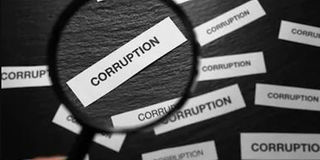Time to walk the talk against corruption

What you need to know:
- The issue: Corruption
- Our view: All the bodies meant to fight graft must be supported to enable them to do their work.
As President Museveni tomorrow leads the walk against corruption, we need to sit back and take a deep reflection. The walk that is organised by the State House Anti-Corruption Unit from the Constitution Square to Kololo Independence Grounds in Kampala, will be held under the theme: ‘A corruption-free Uganda starts with me'.
Deep reflection we need for so many reasons. Already, some members of the Opposition have poured cold water on the initiative, saying the walk is a “mockery intended to confuse the masses to believe that Museveni has the will to fight corruption”. Many other Ugandans have laughed off the event.
You would excuse them for their skepticism going by the statistics:
First, according to the 2018 Corruption Perceptions Index report by Transparency International, Uganda ranked 149 out of 175 countries with the highest corruption cases.
Uganda loses billions of shillings annually to the haemorrhage. Last year, development partners threatened to withdraw millions of dollars following corruption claims. Germany even partially stopped the release of Shs400 billion meant for refugees after integrity questions were raised.
Ministries and local governments cannot function normally because of inflated prices by procurement officials, nepotism, tribalism, wasteful expenditure, and crooked tendering processes, among other forms of corruption.
As a result, the system is ailing. The Judiciary, police, health, education, transport, and security sectors have all been weakened or highly compromised, setting an unconducive atmosphere for development.
Yet even as corruption eats away our fabric, the country has a number of anti-corruption agencies, including the Anti-Corruption Court, the State House Anti-Corruption Unit, the Inspectorate of Government, The Directorate of Ethics and Integrity, The Public Procurement and Disposal of Public Assets Authority, the Office of the Auditor General, and the Directorate of Public Prosecutions.
About two weeks ago, Chief Justice Bart Katureebe, accused these agencies of taking long to nail the corrupt. However, those institutions have their own frustrations. For example, in 2018, IGG Justice Irene Mulyagonja, said most corrupt government officials were “hiding behind” powerful political figures to escape justice.
The fight against graft has largely been all talk, but no action. President Museveni has on many occasions promised to deal with the vice, including confiscating property acquired due to corruption. This newspaper reported yesterday that only 100 government officials had been convicted and asked to refund more than Shs70 billion since 2010. This is just a drop in the ocean compared with the cases reported daily.
We suggest that all the bodies meant to fight graft must be supported to enable them to do their work. We just cannot keep talking. It starts with each one of us.




